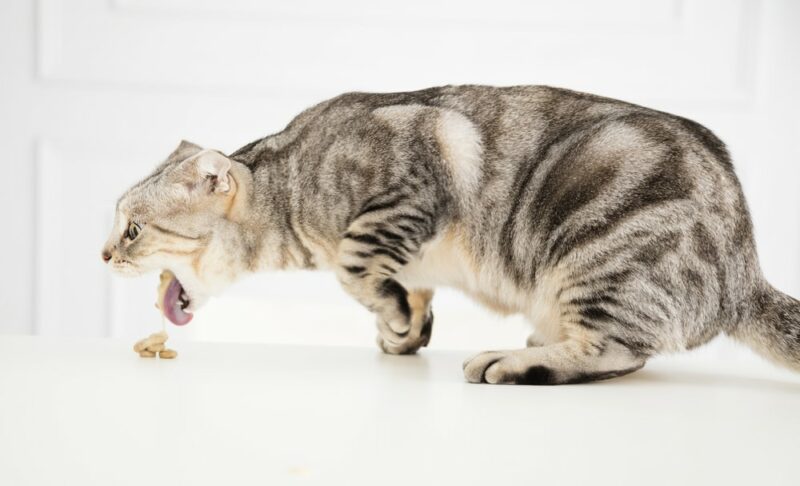Acid reflux and indigestion are fairly problems in cats. If your cat is struggling with this, take heart. You’re not alone in the battle. Acid reflux is usually a secondary problem to other causes, so having your cat examined by your vet is a good idea. You can then help your cat in every way possible. This post explains more about acid reflux and how to help your kitty.

What Is Acid Reflux?
Acid reflux, or gastroesophageal reflux, is when gastric fluids re-enter the esophagus from the stomach, causing an uncomfortable, acidic feeling. Stomach acid is quite powerful and can significantly damage the lining of the esophagus.
The opening connecting the esophagus and stomach, called a sphincter, acts like a gate that blocks fluids from going the wrong way. However, when this relaxes, fluid can come back up the esophagus.
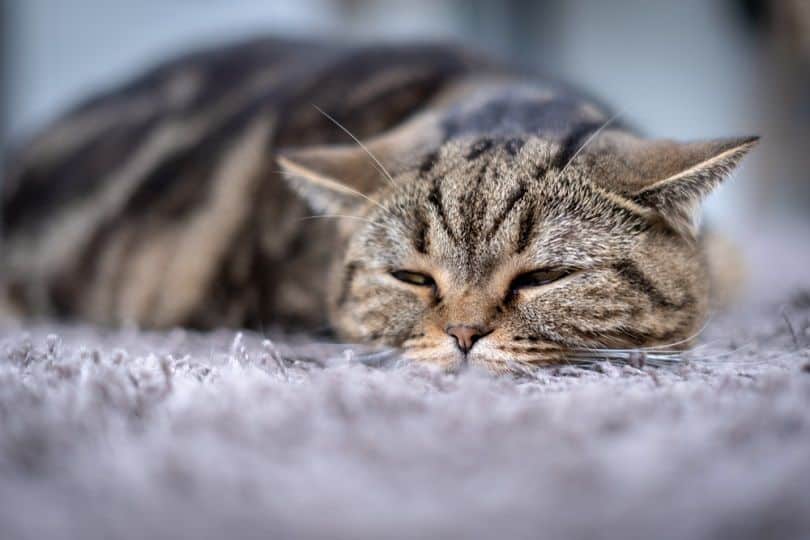
What Are the Signs of Acid Reflux?
Acid reflux causes inflammation of the esophagus. Signs of acid reflux largely depend on how much damage the esophagus receives.
- Pain
- Howling
- Difficulty swallowing
- Inappetence
- Weight loss
- Vomiting
In more severe cases, your cat could experience fever and extreme salivation.
 What Are the Causes of Acid Reflux?
What Are the Causes of Acid Reflux?
Your cat can experience acid reflux for a variety of reasons. Here are a few common causes:
Anesthesia
When your kitty is anesthetized for a procedure, sometimes the medication can make the gastroesophageal sphincter relax, allowing fluids to enter the esophagus. Other times, how a vet professional needs to position your cat for the surgery can contribute to acid reflux. Failing to fast your cat before surgery can also cause acid reflux since the stomach is still digesting food.
Congenital Hiatal Hernia
A hiatal hernia is when part of the stomach bulges through an opening in the diaphragm, causing the same signs of acid reflux. Hernias can occur later in life from trauma, or they can be congenital.
Chronic Vomiting
Vomiting is a vague sign of any illness but is often a sign of gastrointestinal disease, infections, IBD, food allergies, and several others. Chronic vomiting is classified as vomiting persisting for three weeks or longer and can contribute to acid reflux.
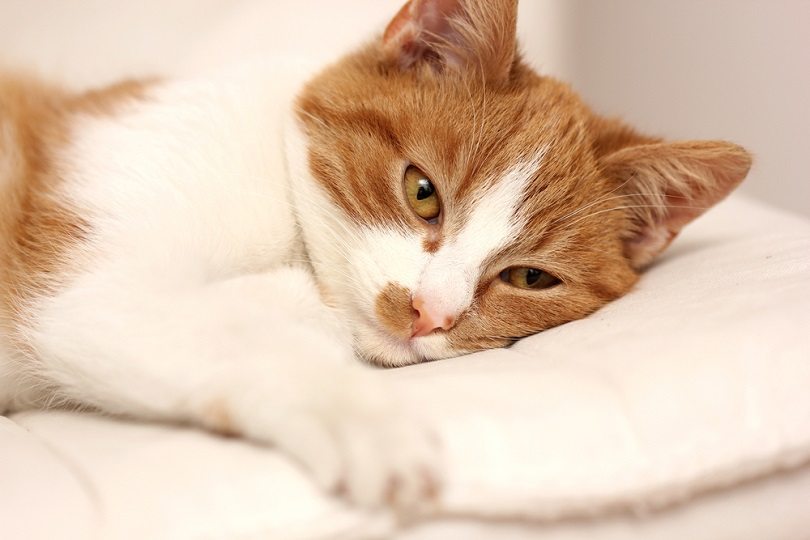

How Is Acid Reflux Diagnosed?
The best way to diagnose acid reflux is by doing an esophagoscopy. This involves taking a small tube with a camera and positioning it into your cat’s throat and esophagus to observe the damage. Don’t worry—your cat is asleep during the procedure. Your veterinarian can even take a few biopsy samples to test for cancer, check for foreign objects, etc. Tests are also done to check for underlying conditions, these may include blood work and other imaging such as x rays and an ultrasound scan.
 How Do I Care for a Cat With Acid Reflux?
How Do I Care for a Cat With Acid Reflux?
Depending on the underlying cause, caring for a cat with acid reflux can often be done at home with a little change in diet and possibly some medications.
Treatment
Vets will focus treatment on addressing the underlying cause and protecting the esophagus from any further damage. Antacids and gastroprotectants may be prescribed. Gastrointestinal prokinetic medicines can help food move through the digestive tract and strengthen the stomach sphincter to avoid future episodes. Your veterinarian will prescribe medications based on your cat’s condition.
Just know that cats can’t have Pepto-Bismol since they are sensitive to salicylates.
Food and Home Life
Regardless of whether your cat takes medications, your vet may also recommend a diet change for your cat, often to a lower-protein and lower-fat food. This specialized diet will reduce gastric secretions and help strengthen the sphincter between the stomach and the esophagus.
Depending on your veterinarian’s opinion, you can feed your cat some snacks as long as they meet the criteria, but be sparing. Any new and extra food can cause your cat discomfort.
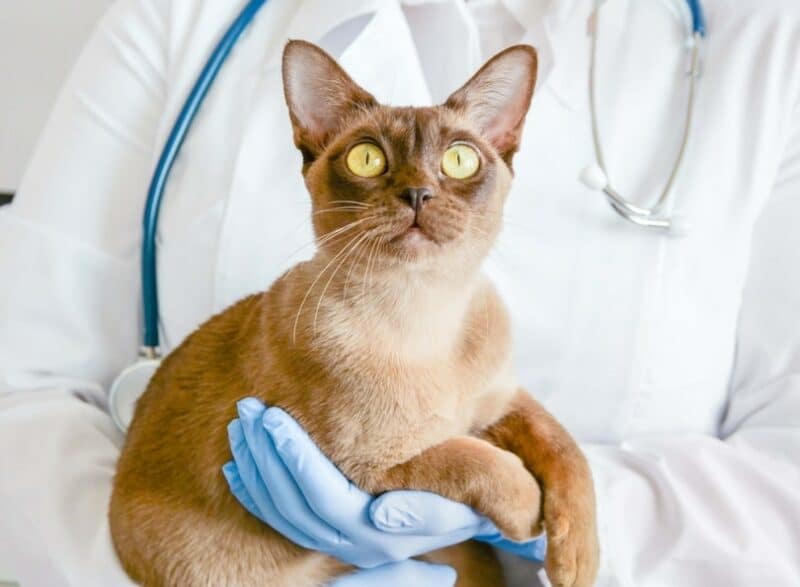
 Frequently Asked Questions (FAQs)
Frequently Asked Questions (FAQs)
How Do I Feed a Cat With Acid Reflux?
You can feed your cat normally or offer food in an elevated bowl for better posture. There is no current evidence though that a raised bowl helps acid reflux in cats.
What Are the Best Foods for a Cat With Acid Reflux?
Speak to your vet as it partly depends on the underlying cause of the acid reflux. Often lower-fat and protein foods are recommended.
Can You Give an Antacid to a Cat?
Vets will sometimes prescribe antacids. Never give your cat any medication unless under vet direction.
Why Can I Give My Dog Pepto-Bismol but Not My Cat?
Cats are sensitive to salicylates in Pepto-Bismol, whereas dogs can tolerate it a bit more.
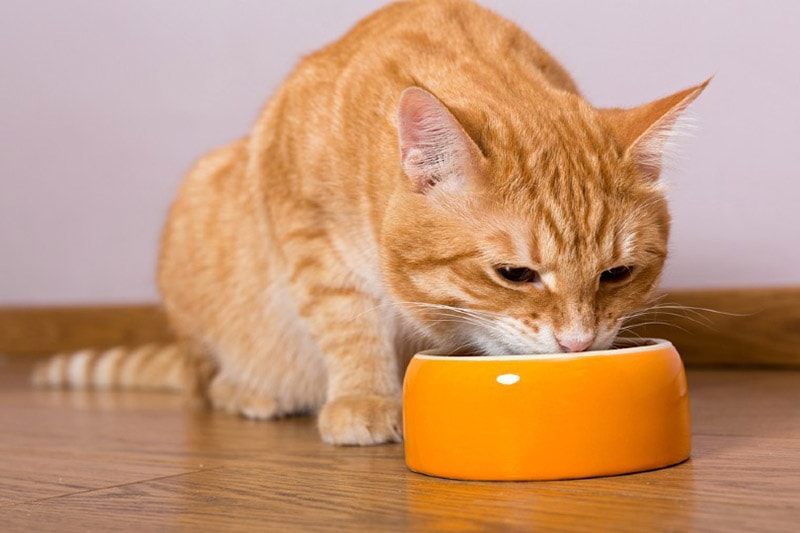

Conclusion
Acid reflux is usually a secondary problem to a primary concern. It’s an uncomfortable ailment that can cause significant damage to the esophagus if left untreated.
The good news is that treatment is usually straightforward after diagnosis. With a little change in diet and meds, your cat can be much more comfortable.
Featured Image Credit: Tom Wang, Shutterstock

